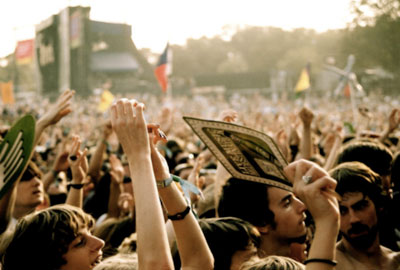All Nonfiction
- Bullying
- Books
- Academic
- Author Interviews
- Celebrity interviews
- College Articles
- College Essays
- Educator of the Year
- Heroes
- Interviews
- Memoir
- Personal Experience
- Sports
- Travel & Culture
All Opinions
- Bullying
- Current Events / Politics
- Discrimination
- Drugs / Alcohol / Smoking
- Entertainment / Celebrities
- Environment
- Love / Relationships
- Movies / Music / TV
- Pop Culture / Trends
- School / College
- Social Issues / Civics
- Spirituality / Religion
- Sports / Hobbies
All Hot Topics
- Bullying
- Community Service
- Environment
- Health
- Letters to the Editor
- Pride & Prejudice
- What Matters
- Back
Summer Guide
- Program Links
- Program Reviews
- Back
College Guide
- College Links
- College Reviews
- College Essays
- College Articles
- Back
Nationalism Is Becoming a Global Thing
President Donald Trump, in sending off his top economic adviser Gary Cohn early this year, proclaimed him a “Nationalist” because “he loves his country”. Here, in his warm use of the term, he represents the current trend, as Brexit and other secessionist events would suggest. Certainly, with great waves of mass-migration challenging the integrity of organizations like the EU, the “us-versus-outsiders” mentality is as potent as ever before. Yet to those within the liberal left, he couldn’t be further from the truth. Cohn’s placement as a “country-loving” figure, one cannot dispute, but what Trump cannot grasp it seems, is the lack of any “love” within autonomy.
Democracy itself, is inseparable from Patriotism. The Late Novelist Louis L'Amour was a central figure in this argument—emphasizing strong love of the state as being hugely necessary if any society is to hold up its implicit claim, of being more than “just a random collection of individuals”. For as British journalist David Goodhart observes, Patriotism “is the ‘glue’ of liberal societies”.
The Nationalist movement, however, that is building steadily in Brexit-struck Europe and populist America paints a different picture. Nationalism, nonetheless, is a belief not in the longevity of one’s own founding ideals, but in the pure superiority of the state, regardless. And with racial-exclusion so crucial to extraction-referendums, and large proportions of the vote going to nationalistic parties in countries such as Hungary and Austria, this “separatist-fad” shows no signs of slackening.
Yet when did the Egyptian-revolutionaries of 2011 call for the insurgence of their political system, purely because they felt it could become more “Egyptian”? Never! Rather, they were calling for the end of police-brutality and electoral-fraud, issues that had long characterized President Mubarak’s three-decade-reign. These uprisings are Patriotic acts, rooted in the cultivation and protection, of ideals and treasures fundamental to a country’s identity. “Cultural-purity” of a single race—anyway, is impossible.
In democracy’s indispensable partisans, we see no animosity directed towards neighboring territories, rather, a fervent love of one’s own. It is this “tribal” instinct, that stirs the patriot’s blood. He performs the crucial incentives, and binds with his essential “glue” the country together; a strong feeling of belonging and intimacy both equally required if any ideology of states is to function with assured stability.
But Nationalism has done as yet no binding, its strong wedge driving great cracks into globalism. And while the motion of autonomy is dissenting the world’s fastenings, such cults of thought are (if but the only thing to do so) crossing freely into the inner-borders of all states. Nationalism is, quite unhinderedly, becoming a rather global thing.
This paradoxical spread shows many symptoms. The current rhetoric of governments implicates far less diplomacy, and if one had to state the underlying incentive for the surge of open supremacist-movements in the US, it would be hard to look further than the president’s seeming permission. At the 2016 Tory Party conference, Theresa May presented in her startling-yet-rallying speech, “if you believe you are a citizen of the world, you are a citizen of nowhere”.
In fact, it is not so much mere superiority that manifests but pure hate. Optimists who throw around names like Cosmopolitan-Nationalism, disregard its toxic, xenophobic roots. In a recent article in the New York Times, Harvard lecturer Yascha Mounk called nationalists supporters of a “half-wild-beast” that, if kept confined, can nevertheless do good. He was trying, futilely, to coax out what seldom-apparent “liberal ideals” are left within it. Any caging done of Nationalism is, I think, by none other than its own hand.
Nationalism is also essential to the authoritarian dictator. North Korea’s Kim Jong-un and Syria’s Bashar al-Assad, show evidently how the regimented regime requires desperately the “other”—depending on this racist, xenophobic “hate” to prevent the public grasping the true fragility of his, while oppressive, actually delicate rule.
George Orwell hinted at this state of political decline in his power-driven party’s maxim: War is Peace. He showed that citizen-initiated fin-de-régime is only prevented by constant border-conflict “defusing” “state-directed quarrels” over the lack of public resources. The slogan’s effect was also evident in the US economic surge of the 1950s, while the country was still viciously at war in Vietnam.
It is imperative to me that the future needs to learn to separate the nationalist from the patriot, as he in turn does with himself and the rest of the world. We need to stamp out the barbarities of this resurging Jingoist movement, once thought, after the atrocities of Nazi Germany, to be buried in the past. No longer must the citizens of a country be blinded by the racial-populism that elected Viktor Orbán as president last month in Hungary. The world must stop hating the “other”, and begin to love themselves.

Similar Articles
JOIN THE DISCUSSION
This article has 0 comments.
